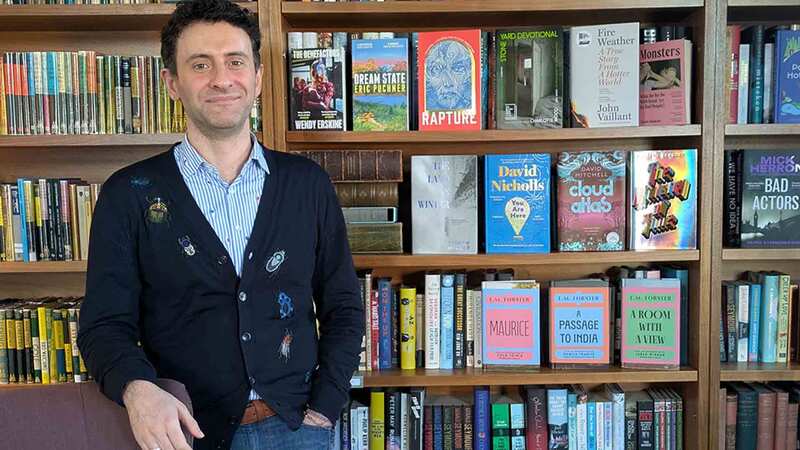You are viewing your 1 free article this month. Login to read more articles.
Four Beijing-bound publishers share their China experience
With a number of British publishing firms looking to expand their operations and sales in the Far East—many with an eye on negating a potential post-Brexit fall in European business—four of varying sizes reveal the challenges and opportunities of working in China.
The art house: Laurence King Publishing
Illustrated publisher Laurence King Publishing (LKP) has exhibited at Beijing since 2001. According to head of rights Barney Duly, attending the fair is a good way to meet contacts and build relationships in a culture which truly values face-to-face interaction. “LKP has always been represented by an exclusive agent in China, so if we didn’t go to BIBF, we would never meet the people who publish our books,” says Duly. “As with many Asian cultures, meeting in person is crucial to establishing long-lasting business relationships. And if you visit them on home turf, rather than waiting for them to come to Europe, it really gets you noticed.”
Duly says the growing Chinese middle-class is global in outlook and particularly interested in aspects of culture, business practice and history.
To that end, LKP has enjoyed success with its art history, graphic design, business and self-help titles, and is hoping its kids’ and gift products will be “the new big thing”. Further, as the Chinese economy continues to grow, so does the number of publishers with money to spend on rights and licences. Duly says: “Although it’s not as frenzied as it was three to four years ago, it’s still a seller’s market if you can offer something fresh and original.” He adds that it’s not all new content, too: LKP regularly sells rights to books which are 10 or 20 years old.
Big successes
The Chinese edition of Johanna Basford’s The Secret Garden (published by Beijing Union Publishing Company) shifted an astonishing three million copies in its first three months on sale in China in summer 2015, and was the nation’s bestselling book of that year.

Johanna Basford
The independent: Flame Tree Publishing
London-based indie Flame Tree Publishing has been attending the fair for the past three years, with the last two years focused on building long-term partnerships.
The publisher’s first year in Beijing was a fact-finding exercise, and while founder Nick Wells says it received plenty of offers for its art and music titles, “very few” were finalised. After a change in strategy, the publisher has decided to focus on constructing long-term partnerships instead of selling individual rights into China. “Coming to Beijing is an exercise in cultural exchange. It’s essential to understand the mechanics of the country, and the heart of the people,” says Wells. He adds that while the press is finding success with art books, education and science are still the strongest sectors, as the Chinese place great value on study. Literature as a whole has seen “a great flowering of interest” in recent years, Wells adds, with much “cross-cultural co-operation with other Asian and European nations”.
The challenge in doing business in China relates to the scale of difference, says Wells. “The language barrier is immense, and the difference in commercial structures is problematic, but there is great will on all sides to overcome these. China is a country with 1.3bn people, it does not need other countries to impose their views, so listening and studying are critical virtues in building business and relationships.”
Big successes
Flame Tree has just agreed a significant distribution and joint co-operation with Jiangsu Phoenix in Nanjing, and inked a series of joint-language publications with China People’s Literature Publishing House.

Nick Wells in China
The powerhouse: Bloomsbury
Bloomsbury has had representatives at the Beijing International Book Fair for almost as long as the fair has existed. As China and its publishing has become increasingly important to the West and Western readers, and vice-versa, the publisher has steadily increased its presence at the fair. It has had its own stand since 2014.
Vafa Payman, m.d. of Bloomsbury Content Services, says that following the recent launch of English-language imprint Bloomsbury China, the company is “particularly excited” to be heading to the fair this year, as it is eager to speak to Chinese publishers and authors about publishing books under the new imprint. Its first title, The Complete Works of Tang Xianzu, was published in February. It is the first time the playwright’s “most revered” works have been made available outside China. Bloomsbury China will also be talking to Chinese publishers about its new China Global Publishing project, in partnership with media company China Youth Press International. The project will provide sales, marketing and distribution services to Chinese publishers who wish to publish their own English-language books for sale to the global market.
Big successes
The kids’ edition of Peter Frankopan and Neil Packer’s The Silk Roads was recently licensed to Shanghai Dook Publishing, which also publishes the original adult edition.

Peter Frankopan
The debutant: Watkins Media
Watkins Media will be making its BIBF début this year, seeking to capitalise on the recent boost in trade it has enjoyed in the region.
With China being such a huge market, Watkins’ titles—which relate to self-help, soft business and spirituality—appeal to China’s middle-class, young professionals who are living fast-paced lives, says rights manager Jenna Brown. The publisher consists of a collection of eclectic imprints: Watkins, for self-help, personal development and mind, body and spirit; Nourish publishes healthy living and cookery; Angry Robot houses science fiction and fantasy books; and Repeater issues radical politics, fiction and philosophy books. Brown says such breadth means it is able to cater to a broad range of the Chinese population.
For the publisher, self-help is selling strongly in China, with titles such as Anatomy of Loneliness by Teal Swan and You Can Thrive After Narcissistic Abuse by Melanie Tonia Evans doing well. Brown has also noted a growing interest in including audio rights in its licences to China, and suggests the audio market is one to keep an eye on.
She says that delays are likely to happen when dealing with Chinese publishers, mostly in receiving signed contracts, or finished copies of books. “But as long as you expect that, and plan ahead for it so you’re not cut short on time, it’s not too bad at all,” says Brown.
Big successes
Watkins has recently sold two of its biggest authors into the country: Tony Buzan’s Mind Map Mastery went to CITIC (simplified Chinese) and Domain Publishing Company (complex Chinese), while Theresa Cheung’s 21 Rituals to Change Your Life was picked up by China Legal (simplified) and Domain (complex).













